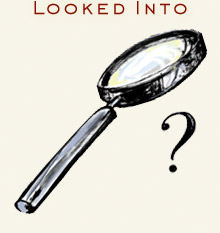Emdashes—Modern Times Between the Lines
The Basics:
About Emdashes | Email us
Ask the Librarians
Best of Emdashes: Hit Parade
A Web Comic: The Wavy Rule
Features & Columns:
Headline Shooter
On the Spot
Looked Into
Sempé Fi: Cover Art
"Poetry's a Little Swervier Now": An Interview With Alice Quinn
Filed under: Looked Into Tagged: A. J. Liebling, Alice Quinn, boxing, David Remnick, in memoriam, Muhammad Ali, Paul Muldoon, poetry, sports

There’s a short, good interview with Alice Quinn on the Poets & Writers website, in which she talks about her twenty years as The New Yorker’s poetry editor, what she’ll do next, and her successor, Paul Muldoon. An excerpt (thanks to Ron Silliman for the link):
How did you feel about the appointment of Paul Muldoon as poetry editor?Also, R.I.P. Milt Dunnell, sports columnist for the Toronto Star, who won an A.J. Liebling Award from the Boxing Writers’ Association of America in 1997. He passed away last week at the age of 102. From the collegial and eloquent obituary in the Star:
It was really my dream to have him succeed me. David [Remnick] asked, “What would you think about Paul Muldoon?” and honestly, I almost did a jig. You lay a foundation and then you see that somebody you adore and admire is going to come and shore it up and further it, and that’s great.
Who do you perceive to be the audience for the New Yorker’s poems?
I feel that New Yorker readers are people who were profoundly connected to poetry in childhood, adolescence, or college, who want to touch base with it and want to feel that they still can read poetry. The New Yorker gives poets access to an international audience of literarily eager people who are sampling poetry.
The 1975 fight between Ali and Frazier in Manila – the Thrilla in Manila – was his all-time favourite sporting event. At the time, he began his column this way:
“Not since the big guns of nearby Corregidor, now rotting in the tropical sun, has there been such cannonading in this corner of the Pacific.”
It was the greatest fight he covered and Ali was the greatest athlete of the century in Dunnell’s view.
“In my opinion,” he once said, “Ali was one of the greatest salesmen and public relations personalities in the world.”
“After a training session, Ali would sit on the corner of the ring and talk for an hour. Most of it was b.s., but he would talk about world politics, fighting, about blacks in society … all those things … and he described himself as the world’s best-known citizen.”
But he didn’t know everything. If Dunnell was nearby and Ali didn’t have a stock answer for a technical or historical question, he would say, “I don’t know about that. Why don’t you ask Milt here?”
…
On one occasion, Stephen Brunt, a sports columnist for the Globe and Mail, recalled seeing Dunnell in action at a heavyweight fight between Mike Tyson and Michael Spinks in 1986.
“The bout ended quickly, but still it was past midnight and in the confusion at ringside there was shoving and jostling as the spectators pushed toward the ring and as the reporters tried to push their way out to the post-fight press conference.
“And somewhere, in the middle of it all, was Dunnell (only about 80 then), climbing over a table, fighting his way through the mob, to get the quote, to get the story, to get it back to his readers, to make the event real the next morning over somebody’s breakfast in Scarborough.
“Athletes aren’t the only heroes in sport,” concluded Brunt.




Comments
Excellent website, amazing poetry. The best of luck with your retirement.
Shirley Gerald Ware, Author